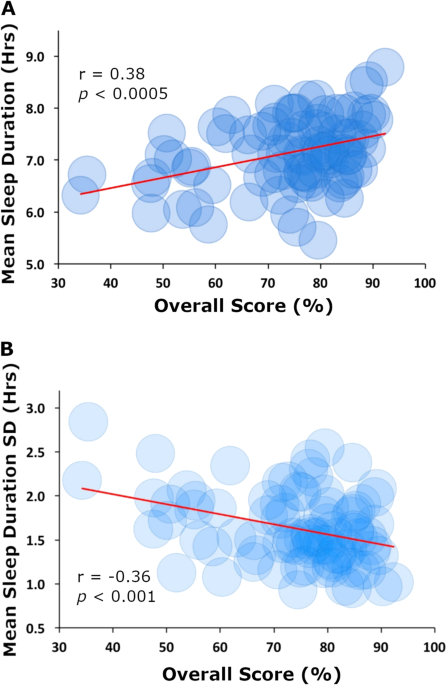
Sleep plays a pivotal role in various aspects of cognitive function, influencing not only memory retention and recall but also other cognitive processes such as attention, problem-solving, and creativity. A range of studies indicates that sleep quality, duration, and patterns are crucial for optimal cognitive performance.
Memory Consolidation
One of the most significant ways sleep affects cognitive function is through its essential role in memory consolidation. During sleep, particularly in the deep non-REM stages, the brain processes and reinforces memories formed during wakefulness. Research has shown that sleep supports the reactivation of recently learned information, enabling the transition of these memories from short-term to long-term storage[4]. For instance, the consolidation of memories is notably more effective when reactivated during slow-wave sleep, which is linked to improved recall and retention of learned material.
Moreover, studies have found that sleep deprivation adversely affects memory. Participants who experienced limited sleep showed decreased performance on tasks requiring memory retention. A controlled study illustrated that the better quality and longer duration of sleep correlated positively with improved memory scores among students, emphasizing the necessity of adequate sleep for cognitive success[5].
Learning and Academic Performance

The connection between sleep and academic performance is evident through various investigations into student populations. A study involving college students equipped with wearable activity trackers revealed that those who maintained better sleep quality, duration, and consistency scored significantly higher on quizzes and examinations. This suggests that consistent sleep habits directly relate to students' cognitive readiness and performance in academic settings, while a lack of sleep before assessments did not significantly correlate with test scores, reinforcing the idea that overall sleep patterns are more critical than last-minute sleep adjustments[6].
Furthermore, a randomized crossover study indicated that participants who consistently maintained their habitual sleep schedule displayed improved working memory and response inhibition, showcasing that both acute and chronic sleep qualities importantly shape cognitive functioning[5].
Problem-Solving and Creativity
Beyond memory and academic performance, sleep also contributes to problem-solving abilities and creativity. Sleep appears to facilitate unique cognitive processes that enhance creative thinking and innovative solutions to problems. For instance, findings demonstrated that individuals who had adequate sleep tended to show better performance in tasks requiring critical thinking and creative problem-solving skills[2]. Studies focusing on REM sleep indicate that it may particularly aid in generating novel associations between ideas, thereby fostering an environment conducive to creative insights[2].
In one notable experiment, cues given during sleep enhanced participants' ability to solve complex problems significantly compared to those who did not receive such cues, suggesting that sleep not only aids memory consolidation but actively supports cognitive flexibility and inventive thought[4].
The Role of Sleep Quality

The quality of sleep is also an essential factor in cognitive performance. Poor sleep quality has been shown to correlate with various cognitive deficits, including lower attention spans, increased mental fatigue, and reduced cognitive agility. Higher levels of sleeplessness or insomnia were linked with compromised cognitive function, confirming that the benefits of sleep extend beyond mere quantity to encompass the quality of sleep experienced. For example, individuals reporting consistent good sleep quality exhibited significantly higher cognitive functioning, underscoring the need for restorative sleep[1].
Homeostatic and Circadian Influences
Moreover, sleep's impact on cognition isn't solely determined by duration and quality—it is also influenced by circadian rhythms and individual sleep patterns or chronotype. Research suggests that misalignments between one's internal clock and external schedules (such as during shifts or irregular sleep patterns) can exacerbate cognitive deficits. Studies show that disruptions in circadian rhythms adversely affect cognitive performance, highlighting the complexity of the relationship between sleep and cognition[1].
Conclusion
The interplay between sleep and cognitive function is multifaceted, with profound implications for memory, learning, problem-solving, and emotional regulation. Adequate sleep plays a fundamental role not only in retaining and recalling information but also in enhancing attention, creativity, and overall academic performance. Both sleep duration and quality are crucial, alongside the timing of sleep relative to cognitive tasks. Understanding and optimizing sleep patterns can serve as a strategic approach to improving cognitive health and academic success, reinforcing the critical importance of restorative sleep in our daily lives.
Get more accurate answers with Super Pandi, upload files, personalized discovery feed, save searches and contribute to the PandiPedia.
Let's look at alternatives:
- Modify the query.
- Start a new thread.
- Remove sources (if manually added).